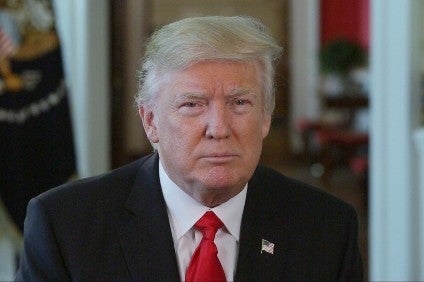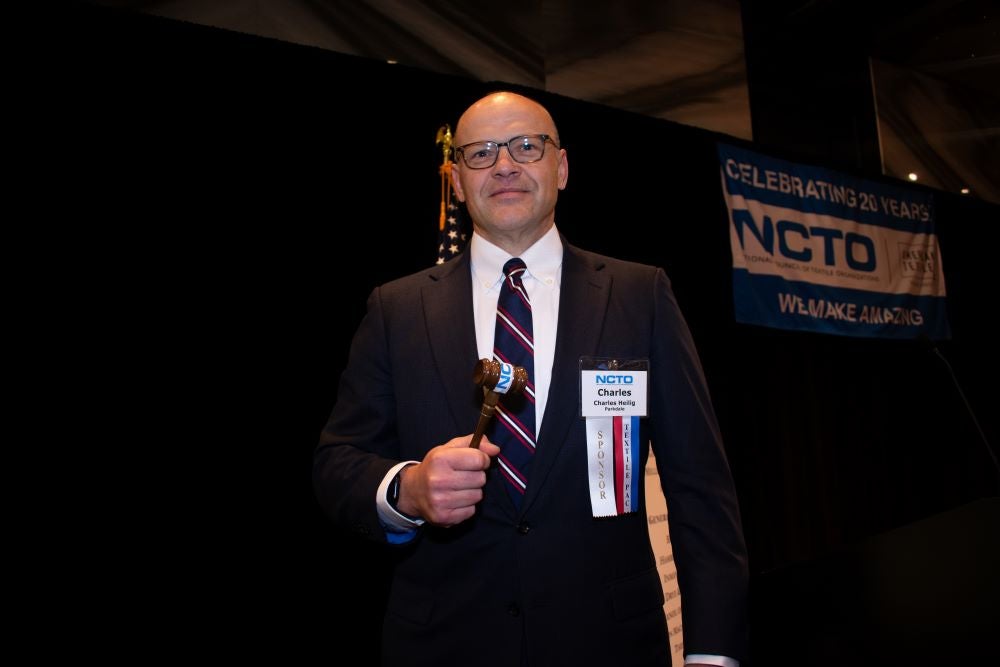
President Donald Trump has taken a tough line in the Administration’s second annual trade policy agenda, emphasising “aggressive” enforcement of US trade laws and limiting the role of the World Trade Organization (WTO).
Speaking to business executives gathered at the White House yesterday (1 March), Trump outlined the policy agenda and the five pillars he says will restore “free, fair and reciprocal” trade: supporting national security, negotiating trade deals, enforcing and defending trade laws, strengthening the economy, and reforming the WTO.
The document is critical of previous administrations for not “asserting sovereign authority” and continuing to “passively adhere to outdated and under-performing trade deals and allow[ing] international bureaucracies to undermine US interests.”
This, it says, has left US workers and businesses at a disadvantage in global markets, as “unfair trading practices flourish in the absence of a strong US response.”
By contrast, the document asserts, Trump has “launched a new era in American trade policy”. His agenda, it says, is driven by “a pragmatic determination” to use the leverage available to the world’s largest economy to “open foreign markets, obtain more efficient global markets and fairer treatment for American workers.”
See Also:
This policy rests on the following principles:
How well do you really know your competitors?
Access the most comprehensive Company Profiles on the market, powered by GlobalData. Save hours of research. Gain competitive edge.

Thank you!
Your download email will arrive shortly
Not ready to buy yet? Download a free sample
We are confident about the unique quality of our Company Profiles. However, we want you to make the most beneficial decision for your business, so we offer a free sample that you can download by submitting the below form
By GlobalDataTrade Agreements: Trump says he intends to continue renegotiating NAFTA to get “a better deal for American workers and improve the US trade balance,” and refine the Korea-US FTA to “improve US export opportunities and facilitate more balanced, two-way trade.” He will also seek an extension of the Trade Promotion Authority (TPA) until 2021, and lay the groundwork for future trade agreements with the UK after Brexit. The US is also open to potential future bilateral trade agreements, including in the Indo-Pacific and African regions.
Strengthening the economy: This focuses on the tax reform bill Trump signed into law in December, which reduced the top statutory corporate tax rate from 35% to 21% and switched the US from a worldwide tax system to a territorial tax system. The move, he says, has strengthened the country’s economy and increased the global competitiveness of American companies and workers.
Enforcement: Trump has initiated several Section 232 investigations into potential national security risks associated with imports of steel and aluminium, and used a variety of trade enforcement tools, including a Section 301 investigation of Chinese policies related to technology transfer, intellectual property, and innovation. It also highlights a 59% increase in the number of new anti-dumping and countervailing duty investigations over the final year of the Obama Administration.
WTO reform: The report criticises the organisation’s “inability to reach agreements needed in a modern global economy,” an apparent reference to the failure of the Doha Round. Trump says he will advocate for “sensible and fair reforms” to the WTO, promoting rules for “efficient markets, expanded trade, and greater wealth for all nations.” In particular, the President says he remains committed to working with all WTO members who share in the US’s goal of “fair and reciprocal” trade deals and relationships. He also aims to hold countries that break the rules accountable for their actions.
Supporting national security: Consistent with his national security strategy, Trump says his policy agenda recognises that “economic prosperity at home is necessary for American power and influence abroad.” He warns against trade policies that weaken the economy and jeopardise national sovereignty. He says the US “remains committed to working with like-minded countries to defend our common prosperity and security against all forms of economic aggression.”
Through the policy agenda, and as part of his trade offensive, Trump has also said he expects to impose a 25% tariff on foreign-made steel and 10% for aluminium in response to the national security investigation he initiated last spring. The Commerce Department last month determined that rising import volumes threatened US national security.
The news sent the Dow Jones industrial average down by around 586 points yesterday, a loss of 2% in early-afternoon trading, before closing the day down 420 points.
The National Retail Federation (NRF) has slammed the move as a tax on American families, with the group’s CEO and president Matthew Shay saying: “When costs of raw materials like steel and aluminium are artificially driven up, all Americans ultimately foot the bill in the form of higher prices for everything from canned goods to automobiles. The reality is that there is nothing this country will gain from such a one-sided policy. These tariffs threaten to destroy more US jobs than they will create while sending an alarming signal to our trading partners and diminishing markets for American-made products overseas.”
While the Section 301 investigation still has until August to make a determination, it could lead to the imposition of tariffs on potentially hundreds of Chinese products – and could hold dire consequences for US cotton producers.







